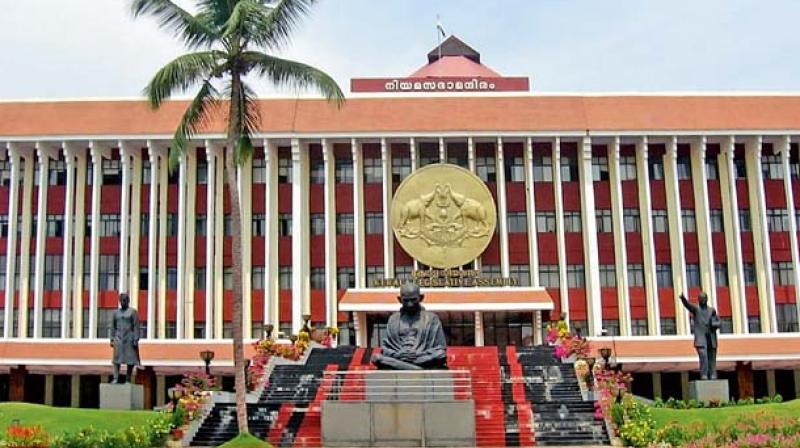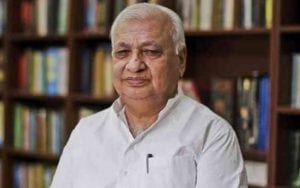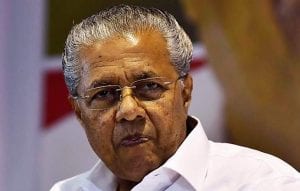
University amendment bill portends another Governor-govt conflict in Kerala

Kerala is entering yet another round of conflict between the government and the Governor as the sixth session of the 15th Assembly begins on August 22.
The proposed University Act Amendment bill, which would curtail the powers of the Governor, would again spark off a row between the two. That apart, a set of ordinances that have expired due to Governor’s unwillingness to approve them again and a few bills waiting to be approved by him would also add to the existing conflict between the two constitutional powers — the Governor and the legislative assembly.
The proposed University Act Amendment bill clearly indicates the government’s stand that Governor should no longer be the superpower when it comes to matters on higher education. A prominent clause in the bill is the expansion of the search committee for the appointment of vice-chancellors to state universities.
Also read: Kerala takes ED head-on as central agency chases KFIIB, its officials
At present, the search committee is a three-member body comprising representatives of the chancellor (the Governor), University Grants Commission and the concerned university.
Search committee expansion sought
According to the proposed amendment, the search committee would include two more members – a representative of the government and the chairman of the Higher Education Council. The search committee’s decision would adhere to the majority decision if there is a dispute. In effect, this would curtail the Governor’s powers to appoint the VC and the government would gain the upper hand.

The proposed expansion of the search committee is part of recommendations submitted by the Kerala State Higher Education Council (KSHEC) last year. According to the minutes of the governing council meeting of the KSHEC held on October 25, 2021, a government nominee should be the chairman of the search committee (replacing the nominee of the Chancellor).
The TN example
What would happen to the Bill when it is sent to Governor Arif Mohammad Khan for approval? Will he approve a bill that curtails his own power? It is noteworthy that a similar attempt by the Tamil Nadu government has not yet turned fruitful. The Tamil Nadu legislative assembly adopted two bills empowering the government to appoint vice-chancellors to state universities on April 25 and sent to the Governor for approval. Tamil Nadu Universities Laws (Amendment) Act, 2022 and Chennai University (Amendment) Act, 2022 were passed by replacing the term ‘chancellor’ with ‘government’, referring to the power of appointing vice-chancellors. The Tamil Nadu government tabled one more bill on May 5, empowering itself to appoint the vice-chancellor of the Ambedkar Law University.
A couple of bills adopted by the Kerala assembly have yet to be approved by the Governor. The Kerala Cooperative Societies Act Amendment bill presented in the previous session was withheld by the Governor despite Ministers Chinchu Rani having a face-to-face interaction with him. The bill, proposing to appoint a representative of the government in milk cooperative societies with voting power, was rejected by the Governor. He expressed the view that the amendment gave undue advantage to the government over the cooperative societies.
Unforeseen situation
“This is a crisis that the makers of the constitution had not foreseen,” says Dr N K Jayakumar, the chairman of the University Reforms Commission and former secretary to the legislative assembly. He told The Federal that the Constitution gives no remedy to such a crisis that arises out of the conflict between the Governor and the state government. There is no judicial remedy as well.

According to Article 361 of the Constitution, the Governor shall not be answerable to any court for the exercise and performance of the powers and duties of his office. “The Governor approving a state government’s policies is more an unwritten practice upholding the essence of federalism. If the Governor refuses to do it, it causes crisis in the administration of the state government which is detrimental to the spirit of democracy,” Dr Jayakumar told The Federal.
Recently, 11 ordinances passed by the Kerala government lapsed due to the Governor’s refusal to re-promulgate the same. He lashed out at the government, alleging that Kerala is being run on ‘Ordinance Raj’.
Also read: Victim’s dress ‘provocative’, said Kerala judge; yet again, a court lets women down
The search committee, recently constituted by the Governor for the appointment of the vice-chancellor of the Kerala University, also sparked a row. The Governor allegedly went ahead with the constitution of the committee, ignoring the university’s request seeking more time to nominate its member. The Governor went ahead with the process and notified the search committee without a member representing the university. The tenure of the current V-C would be over by October and a new V-C has to be appointed.

